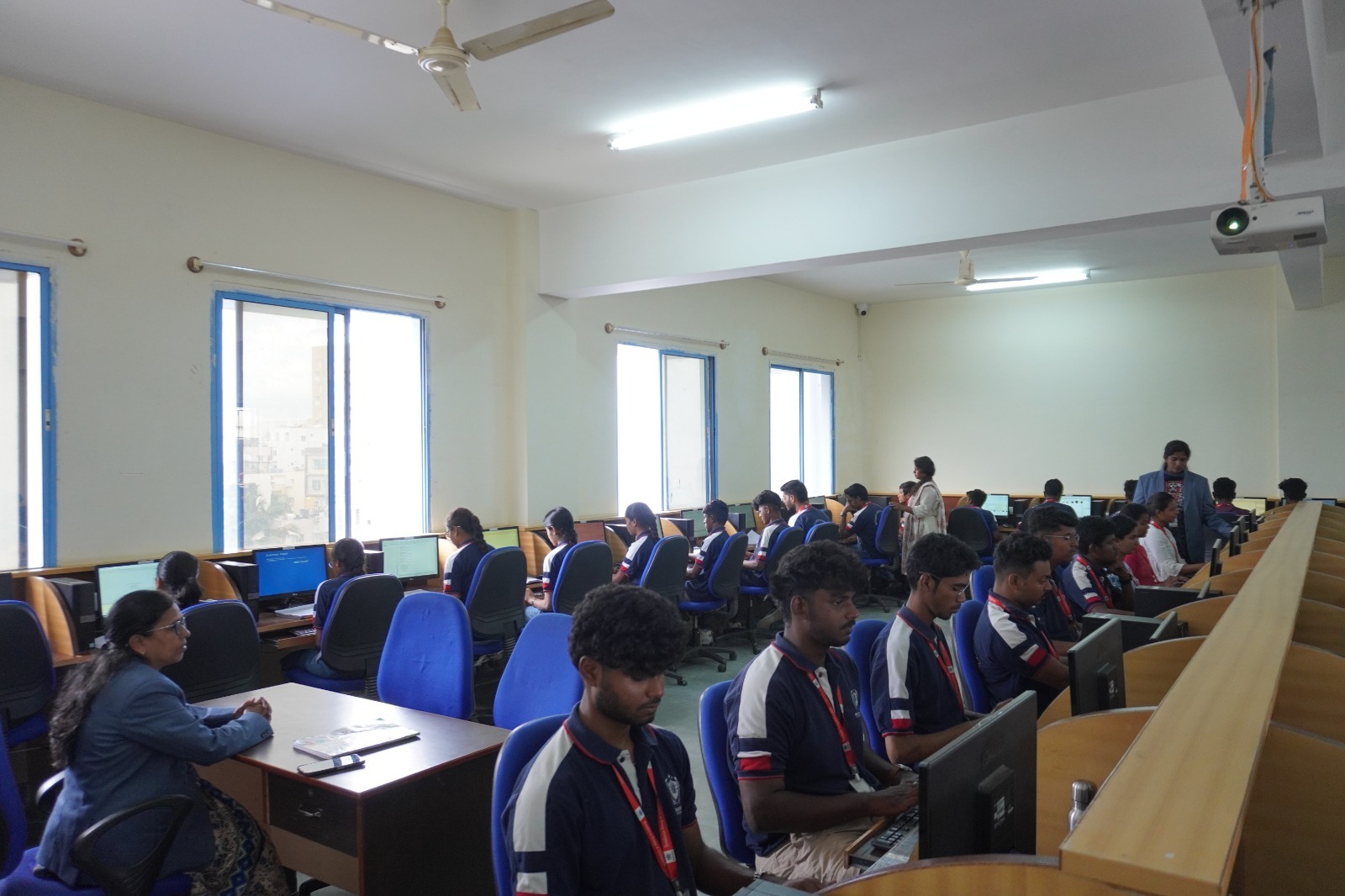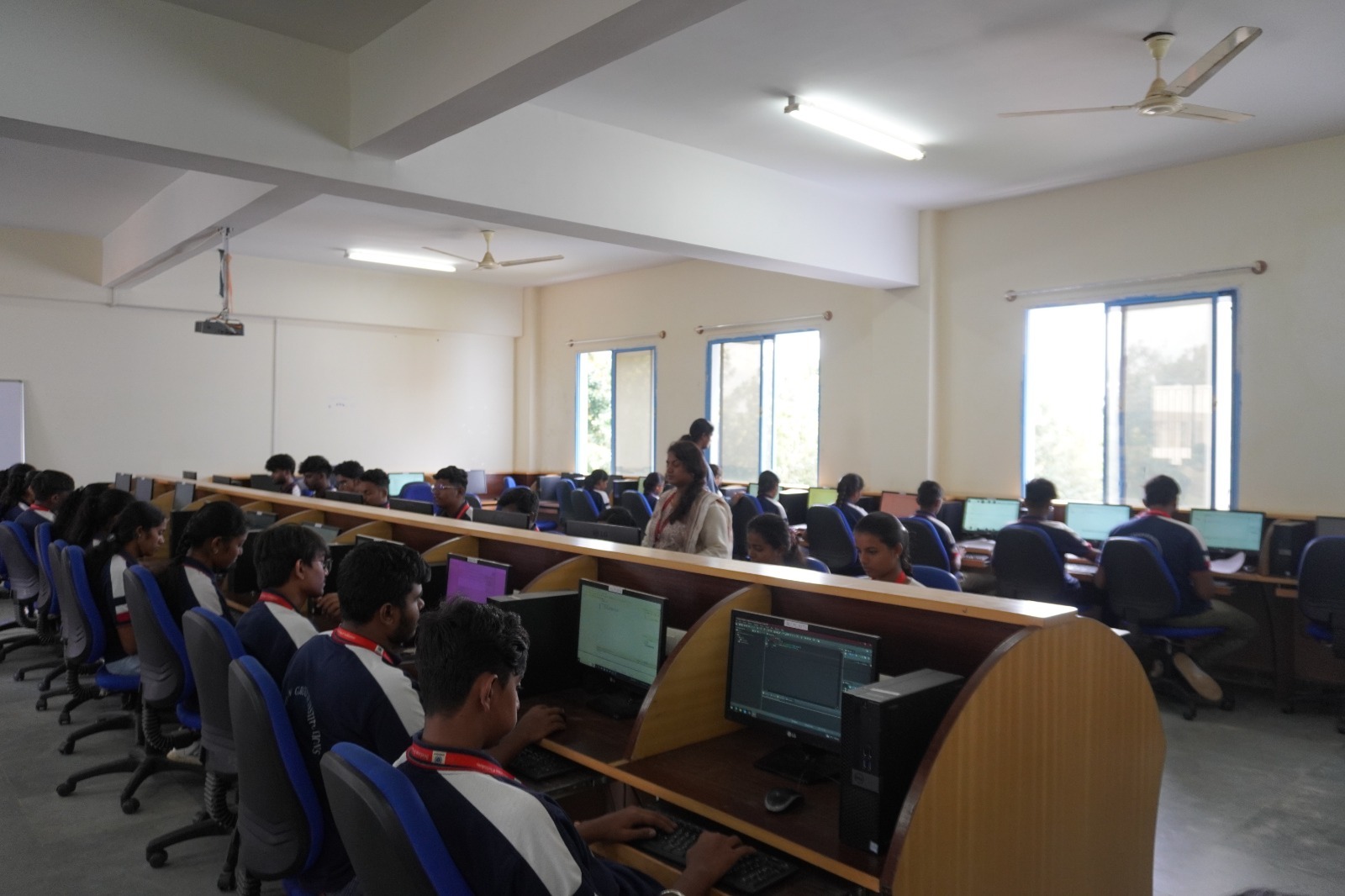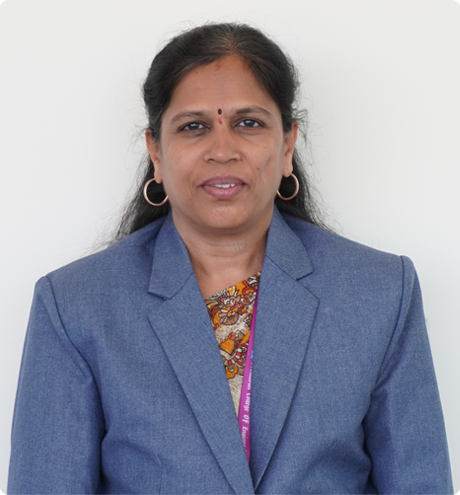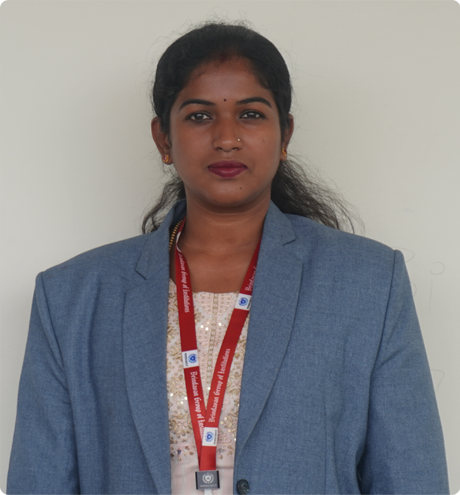B.E. - Artificial Intelligence and Machine Learning

DEPARTMENT OVERVIEW
Explore, Learn, Succeed: Your Pathway to Knowledge
- Always attracted the best of engineering aspirants from all over the country and abroad.
- Department is effective in inducing skilled and competent Computer Engineers and Entrepreneurs prepared to fulfill the requirements of the industry and society at large
- Department is well equipped with adequate infrastructure to support academic, research and extra-curricular activities for the all-round development of our students with well-qualified, skilled and experienced faculty members.
- The Department frequently organizes Hands-on Workshops, Seminar , Webinars, Guest Lectures and Faculty Development Programs in recent trends from Industry Resource for the benefit of students and faculty community.
- The Department encourages the students to conduct and participate in extracurricular/ sports activities.
- The Department has signed MoU’s with leading IT Industries and International Journals.
- The Proctorial and Mentoring system is active by meeting students and conducts Parents Teachers Meeting
VISION AND MISSION
VISION
To be a premier center of excellence for artificial intelligence research through innovative inter disciplinary collaborations and making good contributions to the community, organizations and society at large.
MISSION
To develop students into technically proficient professionals while aiding in their infusion of the creative spirit.
Impart rigorous training to generate knowledge through the state-of-the-art concepts and technologies in Artificial Intelligence and Machine Learning.
Develop a culture of lifelong learning, social responsibility, environmental conservation and professional ethics.
Create centers of excellence in leading areas of computing and artificial intelligence.

Salient Features
Shaping Today, Tomorrow

We have transformed our teaching techniques from black board to hands-on experience and ICT learning.

The Department emphasizes practical and project based learning for students. Students are working on Real time projects in various domains such as Machine Learning, Artificial Intelligence, Internet of Things, Cyber Security, etc.

The Department has efficient and well qualified faculties.

The Department has well-equipped WiFi enabled Laboratories and classrooms with CCTV monitoring.

Additional tutorial classes are conducted for slow learners.

Expanding learning opportunities through online classes and providing course materials and Laboratory programs videos.

The Department fosters student’s participation in National/ International Conferences, Technical fest, Cultural events, Sports meets and extracurricular activities.

The Department promotes students to prepare for various competitive examinations.

Students actively participate in University Level Sports meet, Inter College Fest, Hackathon, National Technical Fest, Awareness Camps etc. while focusing on academics..

Industrial experts have been invited to conduct Hands-On Workshops, Seminars, Skill development programs.
Block Chain
Networking and Communication
Developing Cross Platform Mobile and Web Apps
Big Data Analytics
Software Testing and Web Application
Machine Learning
Artificial Intelligence..
Cloud Computing
Amazon Web Services (AWS)
Cyber Security
Python Programming.
Tips To Crack the Campus Placement Interview.
Carrier Enhancement, Inspiration
DNS Security and DNS Configuration
iOS App Development BootCamp
POs are statements that describe what students are expected to know and be able to do upon graduating from the program. These relate to the skills, knowledge, analytical ability attitude and behaviour that students acquire through the program.
DEPARTMENT LABORATORIES

Digital Design & Computer Organisation Laboratory

Operating System Laboratory.

Data Structures Laboratory

Python Programming for Data Science Laboratory

Computer Network Laboratory

Data Visualization Laboratory.

Deep Learning Laboratory

Database Management Laboratory

Machine Learning Laboratory.

Project Laboratory.
INFRASTRUCTURE
Realizing the importance of rapid advancements in the Artificial Intelligence and Machine Learning sectors, all the laboratories have been furnished with high speed LAN. The labs are updated and upgraded frequently as per the requirements and demand of industry. The well-equipped laboratories help students to meet ever increasing technological and social challenges with its traditions of self-discipline, hard work and a creative approach to solve problematic issues.
PROGRAM SPECIFIC OUTCOMES
Demonstrate and understand the principle and working of the computer system , solve computational tasks using appropriate techniques, tools and skills.
Possess professional engineering practices in various domain’s to identify research gaps and create scalable IT solutions.
Creating an innovative career path, achieving additional expertise and zest for higher studies.
PROGRAM EDUCATIONAL OBJECTIVES
To impart a strong foundation in engineering fundamentals, knowledge and capability of quality study.
To provide in depth knowledge in analyzing, design and solving real life computational problems.
To foster professionalism with ethical consciousness, interpersonal skills and be able to adapt to the evolving technical changes.
3rd to 8th Semester BE – Artificial Intelligence and Machine Learning Scheme of Teaching and Examinations Outcome Based Education (OBE) and Choice Based Credit System (CBCS) (Effective from the academic year 2021 – 22)
Scheme and Syllabus Link:
Course Structure
Download
ELIGIBILITY






INDUSTRY ACADEMIA INTERFACE
The Department is focused towards growth and technology trends. Industrial experts are been invited for conducting Hands-On Workshops on Networking, Software Testing, Machine Learning , Artificial Intelligence and Seminars & Guest Lectures on Cloud Computing ,AWS, Internet of Things (IOT),Cyber Security, Big Data Analytics, Developing Cross Platform Mobile and Web Apps etc.
FACULTY DETAILS

Prof. Padmavathi H G
Associate Professor & HoD
Qualification : B.E, M.Tech, (PhD)
Experience : 20 years
Specialization : Computer Science
Area of Interest : Deep Learning Artificial Intelligence
Email Id : hodaiml@brindavancollege.com

Prof. Sanjay P
Assistant Professor
Qualification : B.TECH,M.TECH
Experience : 1 years
Specialization : Artificial Intelligence
Area of Interest : Artificial Intelligence and Machine Learning
Email Id : sanjayp@brindavancollege.com

Prof. Manasa M
Assistant Professor
Qualification : B.E,M.TECH
Experience : 5 years
Specialization : Power Electronics
Area of Interest : Digital Electronics, Computer Network
Email Id : manasa@brindavancollege.com
FACULTY DETAILS

Prof. Padmavathi H G
Associate Professor & HoD
Qualification : B.E, M.Tech, (PhD)
Experience : 20 years
Specialization : Computer Science
Email Id : hodaiml@brindavancollege.com
Area Of Interest : Deep Learning, Artificial Intelligence

Prof. Manasa M
Assistant Professor
Qualification : B.TECH, M.TECH
Experience : 5 years
Specialization : Power Electronics
Email Id : manasa@brindavancollege.com
Area Of Interest : Digital Electronics, Computer Network
